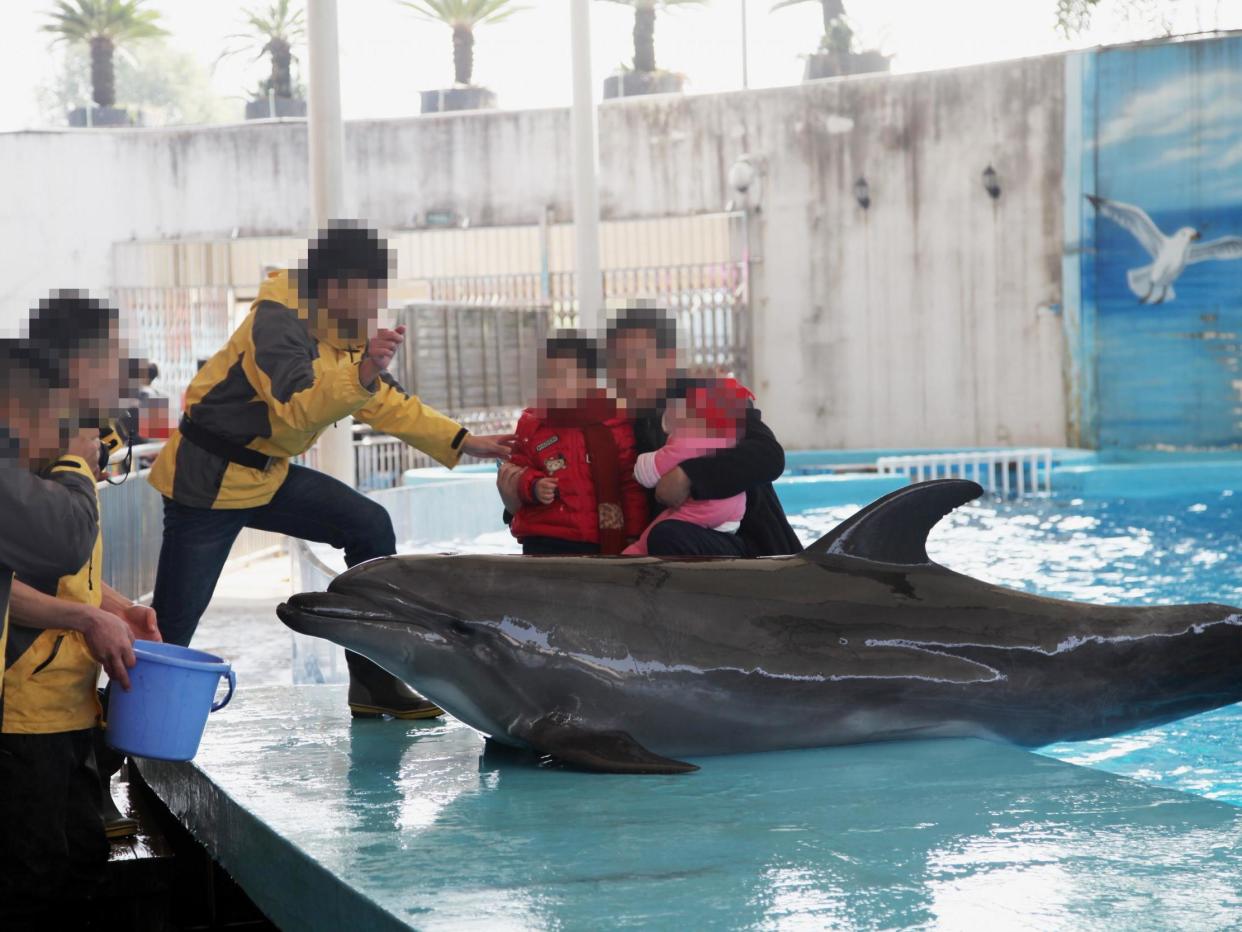Expedia profiting from suffering of 500 dolphins forced to entertain holidaymakers, report says

Travel giant Expedia is profiting from the suffering of hundreds of captive dolphins forced to entertain holidaymakers, a report has claimed.
The popular website sells tickets to “demeaning” shows that exploit about 500 dolphins at 32 venues, the group World Animal Protection (WAP) said.
It claims that millions of animal lovers every year buy tickets, believing dolphin experiences are cruelty-free, educational and good for conservation efforts, “but this could not be further from the truth”.
The report, Behind the Smile, the most comprehensive assessment of captive dolphins to date, says that globally:
There are 336 dolphin entertainment venues in 54 countries that keep at least 3,029 of the animals
Venues featuring captive dolphins annually generate up to $5.5bn (£4.3bn)
Nearly two-thirds of captive dolphins are kept by just five countries: China, Japan, the USA, Mexico and Russia
A previous report by the group alleged that the marine mammals were often drugged to cope with life captivity, and given sedatives when put into new groups and during artificial insemination.
Virgin Holidays, TripAdvisor, Airbnb, British Airways Holidays, and Booking.com announced this year they would stop selling or promoting captive dolphin and whale attractions.
But Expedia advertises a range of holidays and excursions involving swimming or snorkelling with dolphins.
It is currently advertising a six-hour swimming option providing “unforgettable memories” in Malta for £109, at a park with three daily shows, while recognising the animals as “incredibly smart and gentle”.
In the Dominican Republic, Expedia claims the “friendly marine mammals love to play and interact with humans”.
The company boasts of the chance in Mexico to take a “dorsal fin and belly ride” around the animals’ tank, and to see dolphin “tricks” including a “kiss”.
But WAP experts said that “even though they may appear to be smiling, they experience stress and suffering at every stage of their miserable lives”.
Research suggests that more than 284 million people globally have watched dolphin shows in the past three years.
Isobel Chirray, a British holidaymaker, said she was appalled when she saw four dolphins at a hotel pool in Mexico that had people in with them every day.
“One of the dolphins had a sore nose with people touching it. I did report it and made my feelings clear. There were rooms facing on to the pool so there was no respite for these poor animals.
“We walked along one night just to see if we could hear them and were stunned when the security guard was going to let us in. He gestured that he would tap the water and they would come. Of course we declined and again left in tears for these poor animals.”
Dolphinariums say they invest in conservation, but the amount spent is often less than 1 per cent of profit, and dolphins bred in captivity are never released into the wild, WAP claimed.
Nick Stewart, of WAP, described the industry as “sinister”, saying: “Dolphins being used as live surfboards, facing large crowds of people day in, day out with loud music and cheering, and enduring a never-ending stream of tourists seeking that perfect selfie is not education, nor is it humane entertainment.
“Whether bred in captivity or captured from the wild by being torn from their mother’s side, these sociable, intelligent animals are imprisoned for life and are reduced to begging clowns performing circus tricks.
“We need to make this the last generation of dolphins in captivity. The greedy dolphinarium industry has spun a web of lies, portraying themselves as carers, not captors.”
In the wild dolphins swim in at least 100sq km of ocean, but in tiny barren tanks they may self-mutilate from stress, Mr Stewart said.
We need to make this the last generation of dolphins in captivity
Nick Stewart
An Expedia spokesperson said the company had taken steps to remove certain wildlife interactions from its sites both in reaction to “questionable and unsafe” practices but also to feedback from travellers.
“And as this cannot be done alone, we continue to work with five global, industry-leading wildlife and animal protection groups to grow our wildlife tourism education portal,” the statement said. “We are grateful for the close coordination with these organisations and our goal for the wildlife tourism education portal is to help better inform travellers about animal welfare and wildlife tourism.
“The portal includes information as to whether an activity involves animal interactions, with a direct link to learn more about wildlife tourism and animal welfare; and broader education around animal welfare and links to participate in the conversation and take action if a traveller is interested.”
The findings came on the day that WWF revealed the development of dams and illegal gold mining that uses mercury are threatening the survival of river dolphins in the Amazon.
All samples taken from mammals with satellite tags had high levels of mercury, which pollutes waterways and threatens species, WWF said.
Read more
Dolphins’ trauma after being hunted for marine parks revealed

 Yahoo News
Yahoo News 
